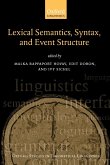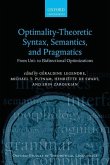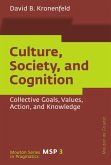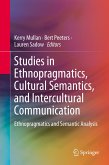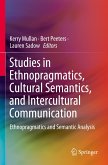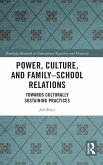To what extent are languages 'essentially the same'? Is every word in our language translatable into every other language or are some of our words and concepts 'culture specific'? In this innovative study, Wierzbicka ranges across a wide variety of languages and cultures, attempting to identify concepts which are truly universal, while at the same time arguing that every language constitutes a different 'guide to reality'. The lexicons of different languages, she shows, do indeed suggest different conceptual universes. Not everything that can be said in one language can be said in another, and this is not just a matter of certain things being easier to say in one language than in another. In the development of her argument, Wierzbicka focuses on the words for emotion, moral concepts, names, and titles.
Not everything that can be said in one language can be said in another. The lexicons of different languages seem to suggest different conceptual universes. Investigating cultures from a universal, language-independent perspective, this book rejects analytical tools derived from the English language and Anglo culture and proposes instead a "natural semantic metalanguage" formulated in English words but based on lexical universals. The outcome of two and a half decades of research, the metalanguage is made up of universal semantic primitives in terms of which all meanings--including the most culture-specific ones--can be described and compared in a precise and illuminating way. Integrating insights from linguistics, cultural anthropology, and cognitive psychology, and written in simple, non-technical language, Semantics, Culture, and Cognition is accessible not only to scholars and students, but also to the general reader interested in semantics and the relationship between language and culture.
Hinweis: Dieser Artikel kann nur an eine deutsche Lieferadresse ausgeliefert werden.
Not everything that can be said in one language can be said in another. The lexicons of different languages seem to suggest different conceptual universes. Investigating cultures from a universal, language-independent perspective, this book rejects analytical tools derived from the English language and Anglo culture and proposes instead a "natural semantic metalanguage" formulated in English words but based on lexical universals. The outcome of two and a half decades of research, the metalanguage is made up of universal semantic primitives in terms of which all meanings--including the most culture-specific ones--can be described and compared in a precise and illuminating way. Integrating insights from linguistics, cultural anthropology, and cognitive psychology, and written in simple, non-technical language, Semantics, Culture, and Cognition is accessible not only to scholars and students, but also to the general reader interested in semantics and the relationship between language and culture.
Hinweis: Dieser Artikel kann nur an eine deutsche Lieferadresse ausgeliefert werden.


